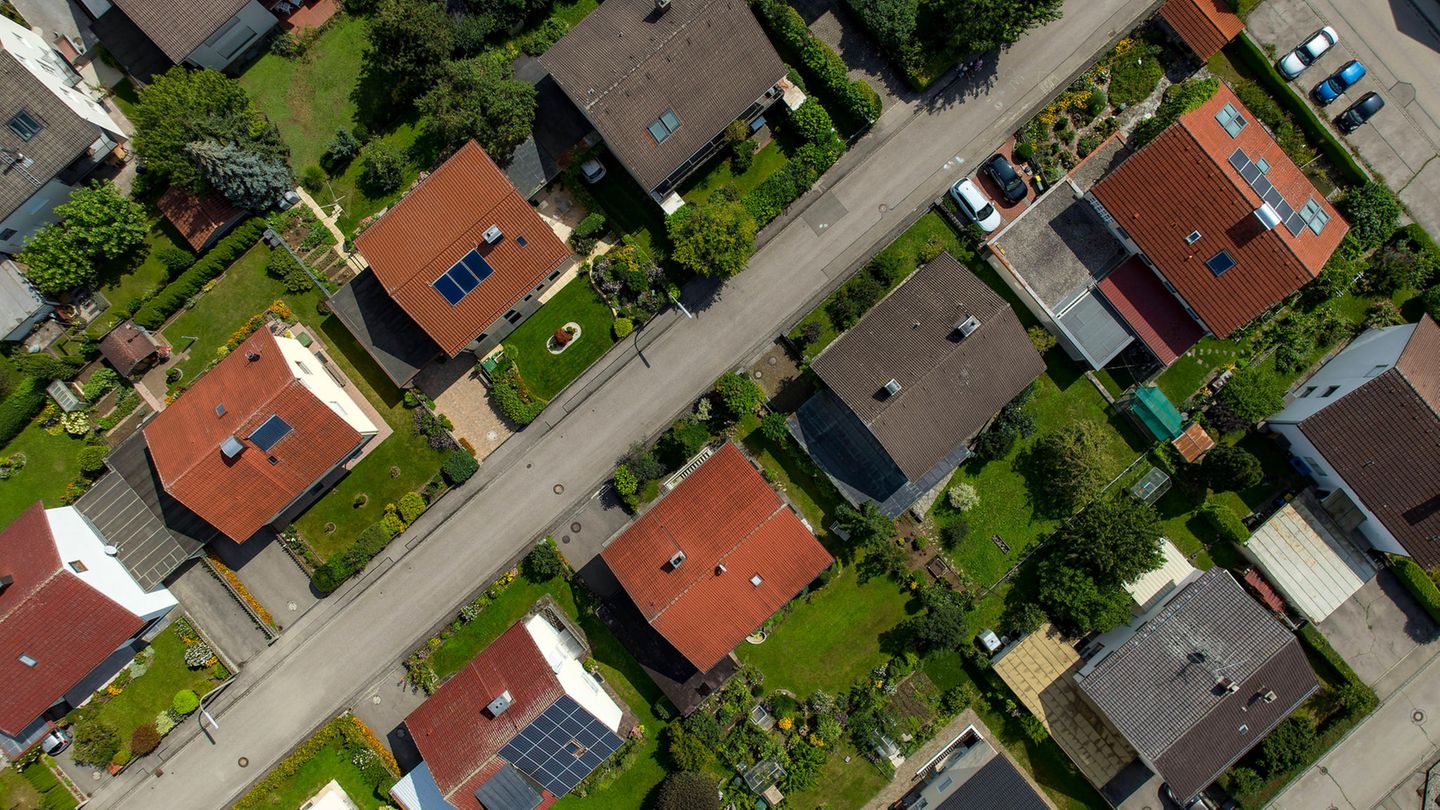Many property owners fear that they will soon have to pay significantly more property tax. This will only become clear once the municipalities set their assessment rates. However, not all states want to make it clear to citizens how high these will have to be

This is original content from the Capital brand. This article will be available for ten days on stern.de. After that, you will find it exclusively on capital.de. Capital, like the star to RTL Germany.
Starting next year, communities and municipalities will be levying the new property tax. However, how expensive it will ultimately be is still a mystery to most property owners. This is because the crucial property tax assessment rate – a percentage that is added at the very end of the calculation – is missing almost everywhere. The majority of cities do not plan to publish their assessment rates until autumn.
According to the German Association of Towns and Municipalities, this is because “the necessary property valuation results are not yet available.” However, a survey conducted by Capital among the 16 state finance ministries shows that the tax offices have now sent out the majority of notices announcing the new property tax value. This is also confirmed by figures from the German Tax Union (DSTG): the vast majority of property owners (93 to 95 percent) have now submitted their property tax returns. Around 90 percent have already been assessed.
However, the tax offices had and still have an enormous amount of extra work due to the large number of objections. After the Taxpayers’ Association (BdSt) called for general resistance to the property tax assessment, the number of objections in the tax offices rose sharply: At 20 percent, the objection rate is much higher than usual for declarations. This is confirmed by the statistics of the Federal Ministry of Finance: According to them, almost 10 million new objections were received in the course of 2023. This corresponds to an increase of over 233 percent compared to the previous year.
Revenue-neutral property tax – for whom?
As long as the municipalities remain silent about their assessment rates, this will cause uncertainty among many home and apartment owners. After all, the revaluation of most properties has already led to property tax values that are significantly higher than the previous standard values. Due to the higher calculation basis, the tax burden for many people is likely to increase in the future, even if the municipalities keep their assessment rates at the old level.
Several federal states now want to use so-called transparency registers to inform their citizens about the range in which a municipality’s assessment rates would have to be in order for the reform to be implemented in a “revenue-neutral” manner. This is what the government promised taxpayers when the Federal Constitutional Court called for the property tax reform in 2018. Municipalities and communities should set their assessment rates so that their property tax revenues after the reform are similar to those before. Overall, the reform should not be used to increase taxes. But that does not mean that every property owner will pay the same property tax from 2025 as before. Some may face higher or even lower burdens.
Transparency register in seven countries
While , and have already published appropriate assessment rates on their websites, Baden-Württemberg, Rhineland-Palatinate and Schleswig-Holstein want to set up their transparency registers in September or October. The states announced this in response to a request from Capital. Brandenburg wants to follow in November. Such registers are intended to serve as a guide for the decision-makers in town halls and councils on how they can keep the property tax at a stable level overall.
The problem: The states can only recommend tax rates, and it is ultimately the cities and municipalities that set them. They can decide for themselves how high their tax rate needs to be so that they can use the tax money to renovate schools, build daycare centers and keep roads in good condition.
Lower Saxony and Mecklenburg-Western Pomerania are therefore taking a middle path: there, the municipalities have been obliged to publish the revenue-neutral assessment rate. If a municipality wants to deviate from this, it must also publish this. “This creates maximum transparency,” says the Mecklenburg-Western Pomerania Ministry of Finance.
Intervention in assessment rate autonomy
In contrast, the federal states of Bavaria, Saxony-Anhalt, Saarland and Thuringia are not planning a transparency register. According to the Ministry of Finance of Saxony-Anhalt, the extent to which the property tax will be revenue-neutral depends “largely on the responsible behavior of the municipalities” within the framework of their autonomy in setting tax rates. The state government also believes that a register would be of little use, since the affected house and apartment owners would be less concerned with revenue neutrality than “the concrete effects of the reform on the property tax on their own properties.”
The Ministry of Finance in Thuringia does not want a transparency register because it would restrict the municipalities’ autonomy in setting tax rates and cause high administrative costs: “The model tax rate, which can only be calculated very imprecisely by the state, restricts mayors and city councilors in their decision-making authority.”
It is a little clearer in the city states: In Hamburg, according to the Senate, negotiations are still underway on which tax rate should apply to Hamburg’s land and property owners. In Bremen, an agreement has already been reached on a tax rate of 755 percent. The city of Bremerhaven, which is also part of Bremen, sets its own tax rate, but according to the Senate, has promised revenue neutrality.
In February, Berlin was the first federal state to set a property tax rate for 2025. For developed and developable properties, it was almost halved from the current 810 percent to 470 percent. The reduction is necessary because properties in the east have been significantly undervalued due to the city’s previous division and the tax burden for property owners in East Berlin threatened to rise significantly from 2025.
Source: Stern




